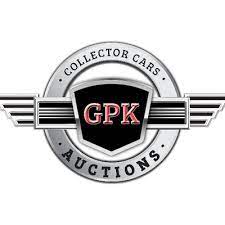Your Complete Guide to Obtaining a Dealer License for Car Auctions
Learn everything you need to know about getting a dealer license for car auctions with this comprehensive guide. Discover the benefits, requirements, and steps involved in becoming a licensed dealer to access wholesale car auctions.

Introduction: Obtaining a dealer license for car auctions opens up a world of opportunities for automotive enthusiasts and entrepreneurs. With a dealer license, individuals gain access to wholesale car auctions, where they can purchase vehicles at discounted prices for resale or personal use. In this comprehensive guide, we’ll explore the process of getting a dealer license for car auctions, covering the benefits, requirements, and steps involved in becoming a licensed dealer in the automotive industry.
Benefits of Obtaining a Dealer License: Before diving into the requirements and steps for obtaining a dealer license, it’s essential to understand the benefits:
- Access to Wholesale Car Auctions: One of the primary benefits of having a dealer license is gaining access to wholesale car auctions. These auctions offer vehicles at discounted prices, allowing licensed dealers to purchase inventory for resale at a profit.
- Ability to Buy and Sell Vehicles: With a dealer license, individuals can buy and sell vehicles for profit without the need to go through a third-party dealer. This flexibility allows dealers to control their inventory and pricing, maximizing their earning potential.
- Expanded Business Opportunities: Having a dealer license opens up various business opportunities in the automotive industry. Dealers can establish their own dealership, offer additional services such as vehicle financing and leasing, and expand their business to include other automotive-related ventures.
- Tax Benefits: Licensed dealers may be eligible for tax benefits and deductions related to their business activities, including vehicle purchases, operating expenses, and business-related travel.
Requirements for Obtaining a Dealer License: While the specific requirements for obtaining a dealer license may vary depending on your location and jurisdiction, there are several common requirements to consider:
- Business Entity: In most cases, individuals seeking a dealer license must establish a legal business entity, such as a sole proprietorship, partnership, corporation, or limited liability company (LLC). The business entity must be registered with the appropriate state or local authorities.
- Business Location: Dealership applicants are typically required to have a physical business location that meets certain criteria, such as zoning requirements, commercial space, and signage. The location must be suitable for conducting automotive sales and related activities.
- Background Check: Applicants for a dealer license may be subject to a background check to ensure they meet the legal and ethical standards required to operate a dealership. This may include criminal history, financial background, and other relevant factors.
- Surety Bond or Insurance: Many states require licensed dealers to obtain a surety bond or insurance policy as a form of financial protection. The bond or insurance helps cover potential losses or damages resulting from the dealer’s business activities.
- Dealer Training Course: Some jurisdictions may require dealer license applicants to complete a dealer training course or education program. These courses provide valuable information on the legal, regulatory, and operational aspects of running a dealership.
Steps to Obtain a Dealer License: While the specific steps for obtaining a dealer license may vary by location, the process typically involves the following:
- Research Requirements: Start by researching the dealer license requirements in your state or jurisdiction. Contact the appropriate regulatory agency, such as the Department of Motor Vehicles (DMV) or the state’s licensing board, to obtain information on the specific requirements and procedures.
- Establish Business Entity: Establish a legal business entity for your dealership, such as a sole proprietorship, partnership, corporation, or LLC. Register the business entity with the appropriate state or local authorities and obtain any necessary business licenses or permits.
- Secure Business Location: Find a suitable business location for your dealership that meets the zoning and operational requirements set forth by your state or local government. Ensure that the location is compliant with all applicable regulations and obtain any required permits or approvals.
- Complete Application: Obtain a dealer license application from the regulatory agency overseeing dealer licensing in your jurisdiction. Complete the application accurately and submit it along with any required supporting documents, such as proof of business entity formation, background check authorization, and proof of insurance or surety bond.
- Attend Dealer Training (if required): If dealer training is required in your jurisdiction, enroll in and complete the necessary training course or education program. This will provide you with valuable knowledge and insights into the legal, regulatory, and operational aspects of running a dealership.
- Pass Background Check: Undergo a background check as part of the dealer license application process. Ensure that you meet the legal and ethical standards required to operate a dealership and address any concerns or issues that may arise during the background check process.
- Pay Fees: Pay any applicable fees associated with the dealer license application process, including application fees, licensing fees, and any required surety bond or insurance premiums. Be prepared to cover these costs as part of the licensing process.
- Receive Approval: Once you’ve submitted your dealer license application and met all the requirements, await approval from the regulatory agency overseeing dealer licensing in your jurisdiction. If your application is approved, you’ll receive your dealer license, allowing you to legally operate a dealership and participate in car auctions.
Maintaining Compliance and Success:
Once you’ve obtained your dealer license for car auctions, it’s crucial to maintain compliance with all relevant laws, regulations, and industry standards. Here are some important considerations to keep in mind:
- Stay Informed: Keep yourself updated on changes to regulations, licensing requirements, and industry trends that may affect your dealership operations. Subscribe to industry publications, attend training seminars, and network with other dealers to stay informed and connected.
- Maintain Records: Keep detailed records of your dealership activities, including vehicle purchases, sales, repairs, and financial transactions. Proper record-keeping is essential for compliance with regulatory requirements and helps protect your business in the event of audits or legal disputes.
- Adhere to Advertising Guidelines: When advertising your dealership and vehicles for sale, ensure that you comply with advertising laws and regulations. Be honest and transparent in your advertising practices, accurately represent the vehicles you’re selling, and avoid deceptive or misleading advertising tactics.
- Provide Excellent Customer Service: Build a reputation for excellent customer service by treating your customers with respect, honesty, and professionalism. Respond promptly to inquiries, address customer concerns or complaints promptly, and strive to exceed your customers’ expectations at every opportunity.
- Invest in Your Business: Continuously invest in your dealership by upgrading your facilities, improving your inventory, and investing in marketing and advertising efforts. By investing in your business, you’ll attract more customers, increase sales, and position yourself for long-term success in the automotive industry.
- Network and Collaborate: Build relationships with other dealers, industry professionals, and organizations to expand your network and collaborate on business opportunities. Networking can lead to valuable partnerships, referrals, and opportunities for growth and expansion in the automotive industry.
Conclusion:
Obtaining a dealer license for car auctions is a significant milestone for aspiring automotive entrepreneurs and enthusiasts. By understanding the benefits, requirements, and steps involved in obtaining a dealer license, individuals can embark on a rewarding journey into the world of automotive sales and auctions. With proper planning, preparation, and dedication to compliance and success, licensed dealers can build thriving businesses and unlock exciting opportunities in the competitive automotive industry. So, whether you’re a seasoned dealer or a newcomer to the industry, consider obtaining a dealer license for car auctions and take the first step towards achieving your goals and realizing your dreams in the dynamic world of automotive sales and auctions.
